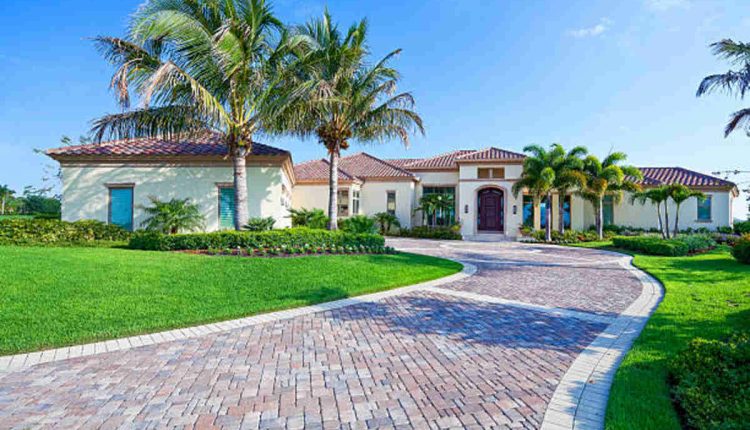Concrete Driveway Pavers
Concrete pavers offer homeowners an elegant yet rugged choice for their landscaping. Able to withstand both harsh weather conditions and heavy traffic loads, as well as minimal upkeep costs, concrete pavers provide homeowners with stylish yet cost-efficient options. Find the best Asphalt Paving in Gilbert.
Pavers offer a more robust alternative to asphalt and ordinary concrete when it comes to protecting against freeze-thaw cycles. They can also be plowed, blown, and shoveled like any other form of pavement.
Cost
Concrete pavers offer homeowners an affordable way to add visual appeal and depth to their property. Available in an array of shapes, colors, and patterns that complement any style home, these pavers come in all kinds of shapes, colors and patterns, and require less maintenance than poured concrete – although installation costs might be higher; additionally, homeowners must factor in extra costs like testing for hazardous materials as well as general contractor markup fees when making their decision.
Pavers offer more aesthetic value and often increase the resale value of homes than standard concrete slabs. They are, owing to their aesthetic qualities and ability to withstand heavy traffic and inclement weather conditions, better than other forms of hardscapes. Furthermore, pavers are easier and quicker to repair than their concrete counterparts—repairs often become indistinguishable from original work done by professionals.
Pavers require minimal upkeep; regular sweeping with a standard broom should suffice to keep them looking their best. Repairing damaged sections is straightforward, and replacement can occur easily as needed. Furthermore, pavers are more environmentally friendly than concrete, as water drains through their surfaces instead of pooling on top, making them a good option in areas prone to flooding.
Durability
Concrete driveway pavers provide a more durable option than concrete, thanks to their interlocking design that prevents shifting and settling over time, creating a more stable solution for your driveway. In addition, this design allows water drainage from the surface of your driveway surface without standing water damaging its integrity over time or leading to erosion damage.
Pavers are made to high standards using a dry mix that contains cement, sand, and gravel. This allows them to handle over four times more weight than standard concrete slabs and makes them a stronger choice for driveways. Furthermore, an array of shapes, sizes, and colors is available so that you can design something tailored specifically to the architectural style of your home.
To maintain a paver driveway’s new-looking appearance, sweep and rinse it regularly to remove dirt and debris. Once it is cleaned, a pressure washer may be necessary to remove grease or oil stains. However, your surface should be stain-free. Adding a protective sealant makes maintenance even more straightforward; remember to reapply periodically!
Pavers provide another key advantage by withstanding harsh weather conditions like rain, snow, and ice. Their durable construction means you won’t need costly repairs or replacements in the future, ultimately saving money over time.
Appearance
Concrete driveway pavers come in many colors, styles, and textures, allowing homeowners to create unique, personalized designs that complement their homes. Installation is quick, and maintenance is minimal compared to other materials like asphalt and concrete surfaces.
Pavers can be utilized in many ways, from creating a single-family driveway to building an appealing courtyard space. Furthermore, pavers make an excellent material choice for creating decorative landscaping features like retaining walls and borders – even acting as an economical replacement for traditional concrete projects in commercial projects.
Pavers are made of high-quality, long-lasting materials that extend their lifespan, making them a sustainable option for paving hardscape areas in homes. Furthermore, their design provides superior traction during wet weather conditions to prevent slips and falls; plus, maintenance requirements are more straightforward compared to other forms of pavers, making replacement easier if damaged.
Concrete pavers differ from other paving materials in that they do not require unique cleaning products or water pressure levels to remain clean. Instead, regular sweeping or hosing down will do just fine to clear away spills and stains; additionally, a light application of sealer every few years can protect them against UV rays and extreme weather conditions that might fade their appearance over time.
Maintenance
Paver driveways are more accessible to keep up with than concrete or asphalt ones, owing to their appealing finish and lower propensity to crack or form potholes than other forms of hardscape materials. Plus, interlocking pavers allow for simple repairs that won’t affect other sections – unlike breaking out and pouring new concrete slabs, which may involve breaking them out again or replacing sections more laboriously and costly than doing repairs with pavers!
Though pavers are designed to withstand the elements, they still require regular care and cleaning. Dirt can accumulate on a paver patio’s surface and cause staining if left undisturbed. To avoid this, regularly sweep using a non-wire stiff bristle brush with non-stain bristles. Alternately, use your garden hose with a spray nozzle attachment to rinse away the grime accumulated therein. Avoid using pressure washers, which can damage paving stones or erode sand joints!
In addition to sweeping, weeds and vegetation must be regularly removed from the pavement surface. Oil spills or other liquids may stain it permanently; however, you can usually treat this staining using a power washer and cleaner designed specifically for pavers.
Finally, deicing chemicals should be applied carefully on a paver patio. Deicers are effective at clearing away snow and ice accumulation but must be washed off as soon as possible to prevent further damage to pavers. Products without sodium or calcium chloride content are best as these could potentially harm pavers; alternatively, a subsurface heating system could be installed under the surface to eliminate future issues with icing problems.

